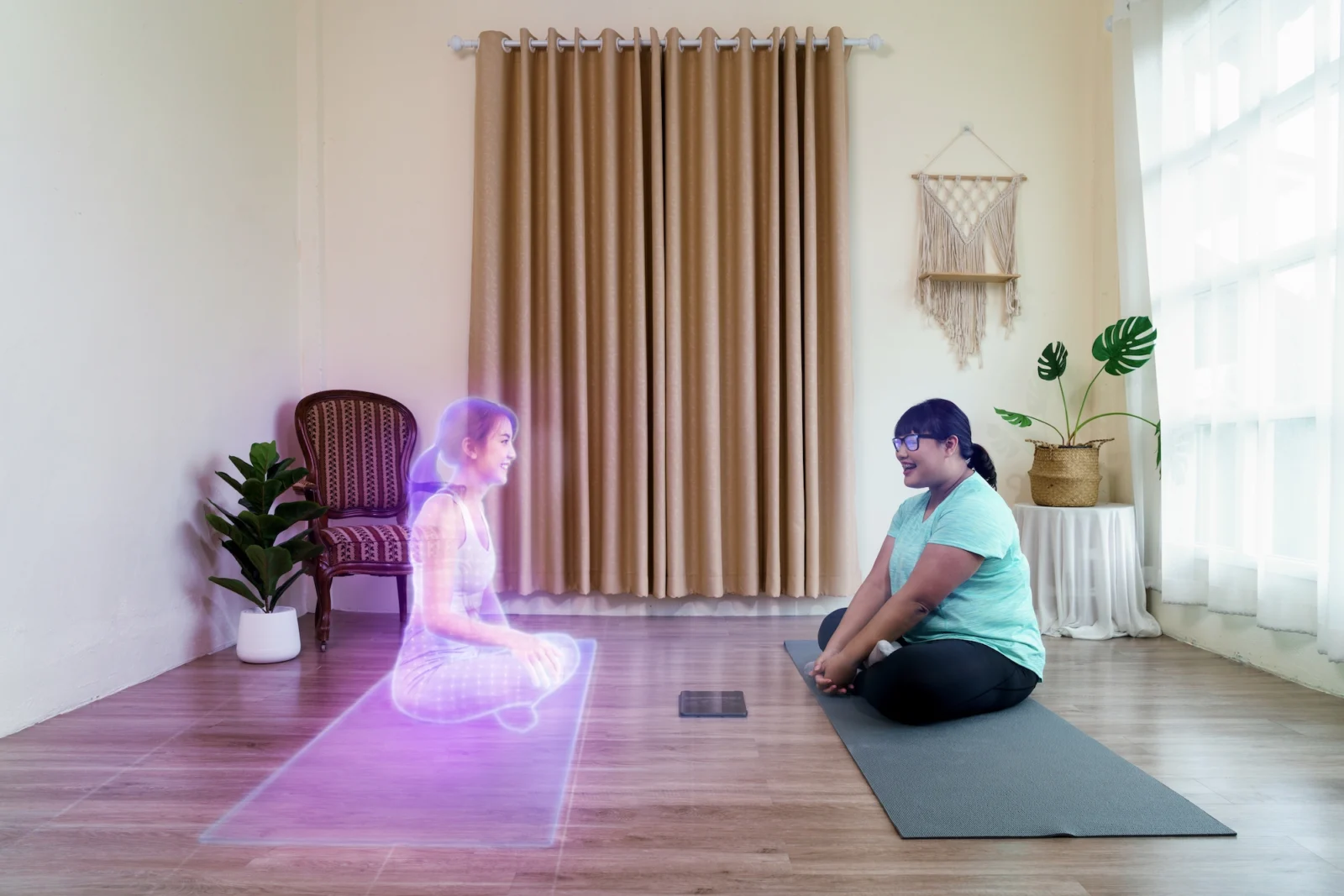Fitness Apps Are Becoming More ‘Human-Like’ Thanks to AI

Pear Health Labs is using Google Cloud’s Vertex AI to offer “truly personalized coaching experiences”
Pear Health Labs, an AI and sports science-powered digital fitness and wellness coaching company, has strengthened its audio and video fitness app, Aaptiv, with a more personalized and interactive fitness experience, resulting from a new partnership with Google Cloud.
The California-based company’s new partnership harnesses Google Cloud’s Vertex AI, an AI platform that trains and refines machine learning models and AI applications. It’s a move that aims to transform Pear Health Labs’ ability to create smarter health and wellness coaching solutions and allow for more natural and customized user interactions within Aaptiv.
“Building upon our considerable experience using AI to guide users’ activity journeys, we’re now harnessing the power of machine learning and generative AI to engage users and meld the physiological and psychological aspects of activity together to offer truly personalized coaching experiences and activity prescriptions,” said Richard Bayly, Pear Health Labs’ vice president of product, AI and data.
The integration will also improve the capabilities of Aaptiv’s digital activity assistant, AVA, by understanding more complex user requests and guiding them with coaching recommendations based on their goals. Google Cloud’s Text-to-Speech API will also support more “human-like voice interactions,” so users can communicate with AVA like a real personal trainer.
“By utilizing Google Cloud’s leading gen AI capabilities, Pear Health Labs can unlock new insights that help them provide personalized workout recommendations and improve the overall user experience,” said Matt Renner, president of Google Cloud.
AI Is Changing Fitness
Artificial intelligence has taken the fitness and wellness industry by storm, assisting operators in attracting and retaining members or supporting activewear brand Gymshark in making product-specific recommendations based on activity from its fitness training app. The U.K.-based company announced last fall that, like Pear Health Labs, it’s using Google Cloud technology to advance its business.
For others in the fitness industry, AI and machine learning are quickly democratizing access to personal fitness and wellness trainers and supporting fitness coaches with in-depth insights to assist clients better.
Tempo, a smart home gym system using AI and machine learning, provides consumers with sensor-equipped smart weights that deliver real-time feedback on form and optimal weight amounts. The concept led Tempo to secure $220 million in Series C funding in 2021 and now leverages biometric data such as VO2 max, heart rate and heart rate variability to suggest workout plans.
Asensei is also breaking new ground in the virtual, augmented reality and fitness AI space, creating software that motion-captures clients working out either at home or in a fitness studio. The tech company’s capabilities have attracted leading fitness brands such as Centr, the health and wellness platform founded by actor Chris Hemsworth, Vertimax, PowerBlock, Litesport, Fittar, Bhout and Alter.
AI is also being used in injury risk prevention and athletic optimization, as seen with Zone7, a Silicon Valley company that has worked with Liverpool FC to help reduce the English Premier League club’s days lost to injuries. While Zone7 has worked with professional athletes, “The Human Uptime Company” sees potential for its tech to help everyday fitness consumers.
Courtney Rehfeldt has worked in the broadcasting media industry since 2007 and has freelanced since 2012. Her work has been featured in Age of Awareness, Times Beacon Record, The New York Times, and she has an upcoming piece in Slate. She studied yoga & meditation under Beryl Bender Birch at The Hard & The Soft Yoga Institute. She enjoys hiking, being outdoors, and is an avid reader. Courtney has a BA in Media & Communications studies.



